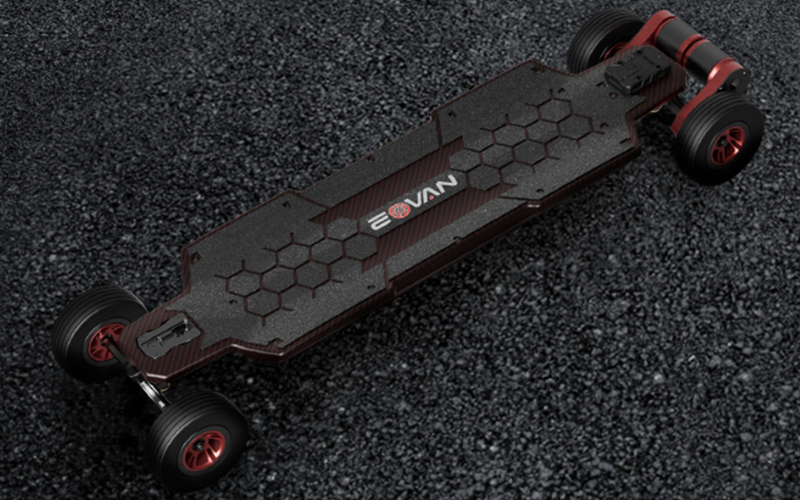When it comes to electric bikes, one of the first things you need to consider is their weight. Without a doubt, electric bikes are much heavier than your average bicycle. It is because they have a motor and battery pack attached to them. And while the motor does help to power the bike, it also adds a significant amount of weight.
Now, this might not seem like a big deal at first. After all, you can pedal a little more complicatedly, right? Well, yes and no. You see, the extra weight of an electric bike can make it quite challenging to pedal, especially up hills.
But with the help of a motor, it will not be a daunting task. Of course, there are ways to offset the weight of an electric bike. For instance, you can opt for a lighter model, or choose an electric bike with a smaller battery pack. See what is more about electric Bikes’ Weight.
Which Electric Bike is Better – Lighter or Heavier?
An electric bike is perfect if you’re looking for a low-impact workout that still provides a great cardio workout. Electric bikes are also a great way to get around if you live in an area with hilly terrain.
But lighter or heavier: which is better? The answer to this question depends on how you plan to use your electric bike. A lighter bike will be better if you use it primarily for commuting. Electric bikes weight can get heavy, and if you’re lugging them up and down stairs every day, a lighter bike will be easier to handle.
However, a heavier bike will be better if you plan to use your electric bike for recreation, such as riding trails or going on long rides. A heavier bike will provide more power, which is great for climbing hills or accelerating. And, a heavier bike will be more stable at high speeds, which is essential if you’re planning on doing any off-roading.
What is the lightest e bike? The lightest e bike is the Specialized Turbo Levo SL. It weighs only 27.5 pounds, making it one of the lightest electric bikes on the market.
Average Weight of an Electric Bike:
I am an avid cyclist and have been for several years. I have owned and ridden many types of bikes, including electric ones. People usually inquire, are electric bikes heavier than regular bikes? I have found that they are, in fact, heavier than regular bikes.

An electric bike weighs about 20-30 pounds more than a traditional bike. This weight difference is due to the battery and motor required to power the bike. While the weight difference may seem significant, it is not enough to impact the ride significantly. Electric bikes are more accessible to ride than traditional bikes because you have the motor to help you pedal.
So, what is the average bike weight kg? It can vary depending on the factors mentioned above, but a good rule of thumb is that a road bike should weigh between 10 and 12 kg, while a mountain bike should weigh between 15 and 20 kg. Of course, this rule will always be the exception, but it gives you a good starting point.
E-Bike’s Weight Based On Types
Regarding weight, there are three main types of eBikes – light, medium, and heavyweight. Each has its own set of benefits and drawbacks that make them suited for different kinds of riders and uses.

Lightweight E-Bikes:
Lightweight eBikes are the lightest of the bunch. Usually, an electric road bike weight around 20-30 pounds. They’re easy to carry and maneuver, making them an excellent choice for city commuting and running errands around town. However, their small size can make them less stable at higher speeds and on rougher terrain, so they’re not the best for off-road riding or racing.
Medium-Weight E-Bikes:
Medium-weight E-Bikes are a happy medium between the lightweight and heavyweight models, typically weighing in at around 35-45 pounds. They offer a good balance of weight, stability, and power, making them an excellent choice for many riders and uses. Whether you’re looking to commute to work or hit the trails for a weekend of off-road riding, a medium-weight E-Bike is a great option.
Heavyweight E-Bikes:
Heavyweight E-Bikes are the heaviest; electric mountain bike weight is around 50 pounds or more. They’re the most stable and robust of the three types, making them an excellent choice for off-road riding, racing, and hauling heavy loads.
However, their size and weight can make them more challenging to maneuver and transport, so they’re not the best choice for everyone. Someone recently asked me, why are RAD power bikes so heavy? There are a few reasons why RAD power bikes are so heavy. One reason is that they are designed to be durable and to last a long time.
Another reason is that they use high-quality materials in their construction. Finally, RAD power bikes are often equipped with features that add to their weight, such as racks and fenders.
Why Do Electric Bikes Weigh So Much?
There are a few reasons why electric bikes weigh so much. First, they often have a large battery pack, which can add much weight. Second, they may have a motor and other electronic components that add to the weight.
Finally, electric bikes typically have beefier frames and tires than regular bikes, contributing to the weight. The fat tire electric bike weight is also higher than traditional bikes.
E-Bikes Weigh On the Scales
Electric bikes, or e-bikes, come in all shapes and sizes—and so do their weights. Here’s a quick guide to help you understand which eBikes weigh how much on the scales.
First, it’s important to note that e-bike weights can vary significantly depending on the make and model. For example, a lightweight e-bike might weigh as little as 15 kg (33 lbs), while a heavy-duty e-bike designed for cargo transport could weigh up to 60 kg (132 lbs).
The weight of an e-bike will be influenced by factors such as the battery size (heavier batteries add weight), the motor type (hub motors tend to be heavier than mid-drive motors), and the frame material (aluminum frames are usually lighter than steel frames).
Here are some rough estimates of what you can expect EBike’s weight based on types:
- Lightweight e-bikes: 15-20 kg (33-44 lb)
- Mid-weight e-bikes: 20-30 kg (44-66 lb)
- Heavy-duty e-bikes: 30-60 kg (66-132 lb)
Of course, the best way to know how much your electric bikes weight is to weigh it yourself! If you’re curious about the weight of a specific model, you can also check the manufacturer’s website or contact a local dealer for more information.
How Heavy is an E-Bike Battery?
Many people are interested in electric bikes because they seem a great way to get around, but they may not know much about them. One query repeatedly comes up is, “How heavy is eBike battery?”

Here’s the thing: there is no simple answer to this question. The weight of an ebike battery can vary greatly, depending on the size and type of battery. For example, a small, lightweight battery might weigh just a few pounds, while a larger, heavier battery could weigh 10 pounds or more.
Of course, the e-bike battery weight is just one factor to consider when choosing an ebike. Other important factors include the range (how far the bike can go on a single charge), the power (how much assistance the motor provides), and the price.
Still, if you’re wondering about the weight of an E-bike battery, the best way to find out is to ask someone who owns one. Or, better yet, try out an e-bike for yourself!
Ultimately, the best electric bike for you is the one that fits your needs and preferences the best. There is no wrong answer when choosing between a lighter or heavier bike. It all depends on what you are looking for in an electric bike.




